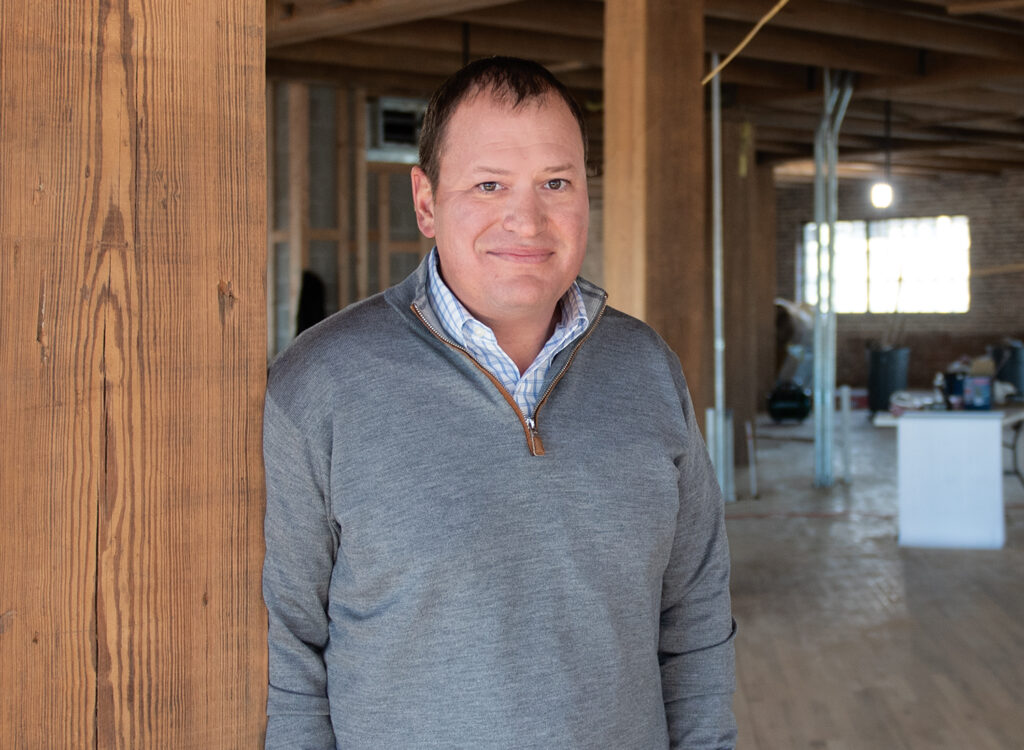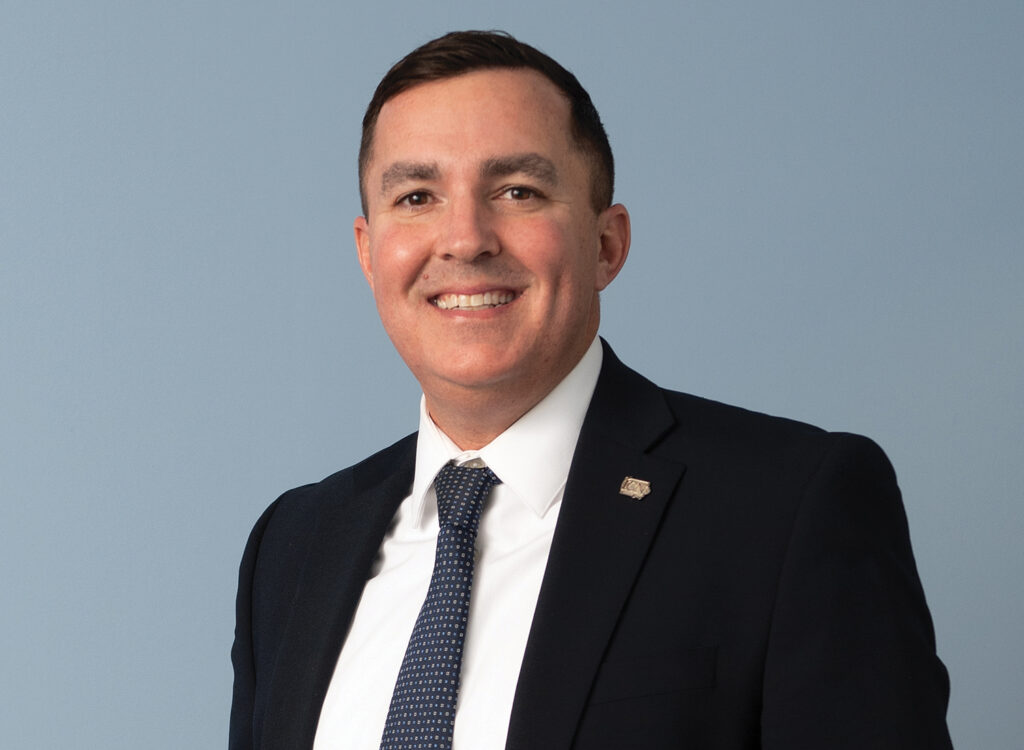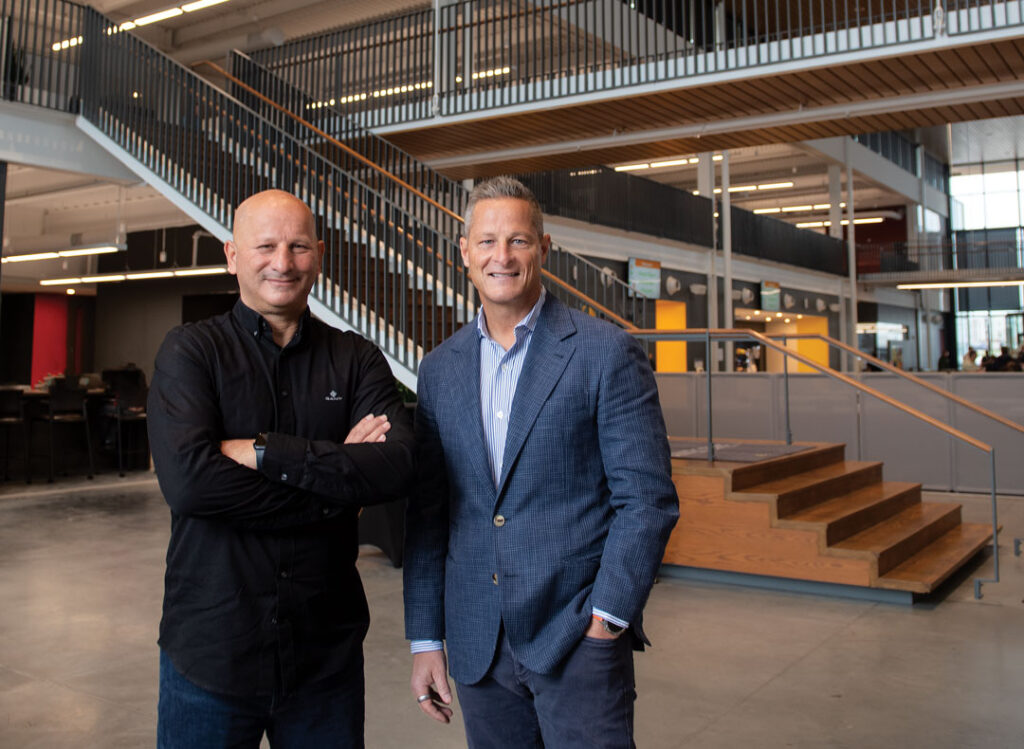Young ambition
Your guide to managing young professionals

ANNE CAROTHERS Aug 12, 2016 | 11:00 am
12 min read time
2,905 wordsBusiness Record Insider, Education
So when my boss, who is younger than my oldest child, tells me that I’m to write the cover story for our August focus issue on young professionals, I’m up for it. (Journalists are, after all, trained to report on almost any subject, even ones they don’t have expertise in.)
Then he diplomatically suggested that we host a panel of young professionals and ask them to help business owners and managers better understand how to engage, manage or mentor the millennial generation of workers.
In our newsroom, generational differences are often the focus of friendly ribbing. Until recently, the staff was evenly split between baby boomers and millennials. As a boomer parent of two millennials, I’m continually surprised at the scrutiny and analysis of this generation.
However, there are good reasons for it — about 80 million of them. A 2015 Pew Research analysis of U.S. census data found that millennials are now the largest generation in the American workforce, accounting for 1 in 3 workers. By 2020, they will be nearly half the country’s total workforce.
For every company that salivates over innovative ambitious young talent, and every community effort to remake Greater Des Moines to be attractive to the next generation of workers, there seems to be commensurate hand-wringing about how to handle these young workers.
According to numerous articles in reputable national publications, workplace perceptions about millennials are that:
- They feel entitled. They’re entry-level employees who believe they should be promoted to the C-suite without paying the dues that previous generations have.
- They think they deserve a trophy for showing up. They want constant positive reinforcement.
- They’re savvy on tech but weak on soft skills and personal interactions.
- They want special privileges. This generation wants more flexibility in the way they work, and unlike their older colleagues, they aren’t afraid to express those desires to their bosses — or to leave if the company doesn’t meet them.
An extensive Bentley University study of millennials’ preparedness for the work world, which surveyed business decision-makers, corporate recruiters and high school and college students in 2014, found 61 percent of those respondents said millennials are difficult to manage.
An extensive Bentley University study of millennials’ preparedness for the work world, which surveyed business decision-makers, corporate recruiters and high school and college students in 2014, found 61 percent of those respondents said millennials are difficult to manage.
We invited five Greater Des Moines professionals — ages 28 to 37 — who have been active in local young professional organizations and the community to talk about the concerns and characteristics of their demographic and how business leaders can maximize this generation of workers and future leaders.
Gimme feedback
One of the stereotypes about young professionals is that they need constant positive feedback. So I put this scenario from a 40-something manager to them: A young worker had complained to him that another supervisor had “yelled at” him. The manager asked him more about the conversation to try to get a better understanding of the exchange. After getting more details, the manager told the young worker that his supervisor hadn’t yelled at him; he was simply telling him that he hadn’t met the supervisor’s expectations in doing a certain task.
Emily Shields: I think sometimes that does get painted as a young professional issue, but to be honest, I’m not actually sure it’s a young professional thing.
I think it’s just a good workplace culture thing to give people lots of positive feedback and make sure you’re reinforcing what they’re doing well, as well as what they could improve. I think most humans respond well to that, not just young professionals. Maybe it’s a culture shift in that young professionals are voicing more that that’s what they want, but I don’t know that it’s just our generation that wants that as a person.
LaVerne Greenfield: I would much rather have that constructive criticism of saying, “OK, this is where you went wrong, but this is how you can make it better.”
Cory Sharp: I try and tell the peers around me in my workplace that you can’t ever ask too many questions. At least that’s the way that I prefer to communicate with my superiors. I feel like I’m just always asking them questions to make sure that the task that I’m doing or the expectations that I’m trying to meet are being met properly.
Adam Kaduce: I’d rather somebody just be direct. If there’s a problem, just let me know and we’ll fix it. I think it does get painted as, “Oh, millennials, you’ve got to soothe them and talk to them differently and give them a trophy along with it.” I just don’t think that’s the case. I think if there’s an issue, just let us know, and we’ll fix it and we’ll move on.
Kim Hanken: Don’t just tell them about the mistake, offer coaching. Help them or work through it with them, rather than saying, “Oh, you did that wrong,” and walk away. It’s a lot easier to have open communication if you trust the person you’re working with.
They want it now
I shared what I thought was a funny anecdote about youthful ambition from some years ago, when I was working on the city desk of The Des Moines Register. Every summer, we’d hire half a dozen college journalists as interns. One year, one of the interns complained that he didn’t know why David Yepsen (the Register’s veteran political editor at the time) got to be the person who covered presidential nominees in Iowa. He wanted to interview them and thought we should give him a shot. Newsroom editors thought the intern was a little arrogant and clueless and got a good laugh at his expense. (No one in the room of young professionals laughed at that story, by the way.)
Shields: I totally am that intern. I’ve never been described as patient. I definitely had experiences where I was pushed down. It was “Stay in your corner,” “Stay in your lane.” Now I understand that more than I used to, but I also think it might be better for people to try to channel that energy. Rather than pointing out that I needed to put in my 20 years or whatever before I could do them, I think saying that you appreciate the energy and the enthusiasm and here’s some projects to run with — I think that’s the biggest thing, having things you can have ownership over and really run with it and try out your creativity on and maybe mess up and fail on. I think those opportunities are important.
Kaduce: Companies that are embracing people like that who are going to want to jump in and get engaged, I think they’re going to be rewarded. Companies that grasp those people and find ways to be that creative outlet for them are going to be richly rewarded. People are going to stay with them. (Besides giving young professionals projects,) I think the other thing is pairing that with a mentorship program so that they can learn, whether it’s formal or informal. Learn from the people who have been there.
Sharp: I’d go with what Emily was saying. I’m one of those people who really likes to try and get in probably before I’m ready and try and find ways that I can be more active in my workplace that maybe are outside of expectations. I know that there are peers of mine whom I would consider very similar to myself who have found that to be a struggle. I think that’s disappointing, because I feel like the company that I work for is finding a lot of really great benefits out of the stuff that I’m doing. I wish that could happen for some of my peers.
Hanken: Young professionals might just have to work that much harder to prove why they’re being given that responsibility.
Chris Conetzkey, Business Record editor: I can think of cases where somebody wanted to do something and they weren’t ready. The question is, if you’re in a management position, how do you have that conversation? Does the person have the self-awareness to know that maybe they’re not? I think that’s always the real trick. If you don’t have that self-awareness, I think the eager beaver, the young hotshot coming in, that can be very off-putting. Then, people don’t want to help.
Hanken: I think what management can do to help those individuals is when you have that conversation, be honest. Say, “You’re not ready for this opportunity, but here’s what I would do for you to help you get ready so next time when it is your turn you’re ready for it.” It’s offering that coaching, the extra step, not just telling them, “You’re not ready,” and walking away. That step is what is needed, I think, with anybody, not just young professionals. It’s to get them to the next level.
Greenfield: Also, I think when you get that “no” answer, that’s the perfect time for you to say, “OK, what can I do to get to that point?” It’s an opportunity for you to take on something that no one else wants to do to prove your worth. You have to see it as an opportunity. Every time that you get shut down or denied for something you really want to do, use that to your advantage and say, “OK, give me three things that I can do for you so I can get to that next step.”
Sharp: Sounds like a lot of the answers around this question are just really making sure those communication channels are open and we’re having honest, communicative feedback with each other. Even though we’re young professionals, we’re still all adults. We can have these conversations with our superiors, and we can get a lot of great things out of it.
Conetzkey: So what happens when young professionals aren’t getting feedback?
Hanken: You have to ask.
Greenfield: If you’re not asking, you really don’t want it, then.
Kaduce: I think you may have to be aggressive with it. If you’re really not getting the feedback you want, you have to be realistic with your expectations, but you’ve got to be aggressive with talking to your supervisor and asking for however often you want feedback, and when is the right time, and setting up. It may require some back and forth, establishing a type of schedule. I think you absolutely have to.
What they value in a job
We asked our panel to describe the benefits or workplace culture they think their generation looks for in a job.
Greenfield: I just can’t imagine a working environment where they want me to choose between my family and my career. Family is always going to win. That’s just the bottom line. … When it comes down to it at the end of the day, it’s just a job. You might be passionate about it, you might love it, but it’s still a job. You need to put your family first, and that’s all that really matters at the end of the day.
Hanken: I don’t believe in work/life balance. I don’t think it exists. Work wins one day. Life wins the next. Sometimes the community wins. It’s just knowing how to manage your time and making sure you’re committed to what you’re passionate about. It helps to have the support from your employer and from home.
Kaduce: I think the other thing that at least I hear a lot about is finding meaningful work. I think you’ve got to find the job that you have passion for and excitement for and you want to go do every day. I think employers need to help try and find a way to make that meaningful, especially for some of their younger talent that it may be more difficult to find exactly how.
Sharp: I would say for me it’s just having that flexibility and that support from a business to allow me to do other things that I’m passionate about that can also positively impact the stuff that I’m doing in my office. I certainly wouldn’t be here today if it wasn’t for that business support that I’ve gotten and gotten involved with YPC (the Young Professionals Connection).
Shields: I think it comes down to feeling valued and trusted. I have that in my current job. I wouldn’t want to go anywhere where I didn’t have that. No one is clocking how much time I’m spending sitting in my office chair, but I have aggressive metrics for what I’m supposed to be getting done. That’s what I’m judged on. How I get that done and when I go to other meetings and how I make that work is up to me. That to me is more important than how much I’m getting paid and what some of the other benefits are.
Watch Video Panel:
To watch the full hour-long panel discussion and hear about topics not included in this story, go to www.businessrecord.com/Video.
What I learned about young professionals:
- They don’t particularly like being called “young professionals” — mostly because they don’t like being labeled, but also because they perceive negatives attached to the word “young.” “I’d just say that that’s just a term that someone older than me gave me. They had to go through it too. It’s like hazing,” said LaVerne Greenfield.
- They are aware of the critique of their generation. On some things, like their ambition, they’re unapologetic. On others, like their desire for feedback, they’ll tell you their generation is getting a bum rap — workers of all ages benefit from more feedback from their supervisors.
- They want transparency about benefits and policies at their companies. They are more likely than older generations to ask for the benefits they want or leave for a company that has those benefits. Or to ask why the policy is the way it is.
- They crave coaching — not coddling as is sometimes assumed — from their managers.
- They value being trusted and being given flexibility in how and when they get the job done. They want opportunities to do their jobs the ways that work best for them — whether that’s in a team (they typically are better at working in teams than older professionals) or alone at a computer with their headphones rockin’ their favorite music.
- They’re not of one mind about transit issues. For all the talk of improving public transit and making the metro area more bike- and pedestrian-friendly to attract young workers, this generation isn’t necessarily more likely to use those transportation options. “It’s just so much more convenient to get in my car, go from point A to point B and all places in between,” said Adam Kaduce. “I think in order to get more people to take advantage of some of the public transportation options, it’s going to take a significant culture change, significantly more inconvenience in people’s lives. But I do think we’re making great strides in our public trails. I run on trails.”
What they want in benefits
- Parental leave and more childcare benefits.
- Sick leave in addition to vacation leave instead of a generic paid time off policy that covers all time off.
- Volunteer time off — employees get extra time off, in addition to the allowable PTO — to volunteer in the community.
- Pet-friendly workplaces.
Key takeaways:
Kaduce: What I hear a lot about is finding meaningful work. I think you’ve got to find the job that you have passion for and excitement for and you want to go do every day. I think employers need to help try and find a way to make that meaningful, especially for some of their younger talent that it may be more difficult to find exactly how. I think it’s finding opportunity to maybe provide some of that flexibility so they can get engaged in a group in the community or can be a little bit more involved. Whether it changes the world, it certainly changes the world for that individual.
Shields: Many businesses are still set up as though they are employing someone who has a partner taking care of the kids at home. Most of us don’t. My husband and I work really hard to try to do 50/50 at home, and we need employers who support both of us in that. Flexibility from the employer is really important.
Kaduce: A lot of the young people I talk to, we always ask why. Why is it this way? Why is it that way? Just because that’s always been the way it’s been isn’t a very good answer for your young talent. It’s having that transparent policy: “Here’s what the policies are, and here’s why they are what they are.”
Shields: I think the young professionals and even the X generation that’s coming out is much more focused on social justice and equity than maybe we have been in past generations. Des Moines definitely does lack, I think, a focus on diversity and equity. I think we’re always going to have trouble recruiting more young people to live here who want to be in a more diverse environment, to raise their kids in a more diverse environment without more of a focus on that.









